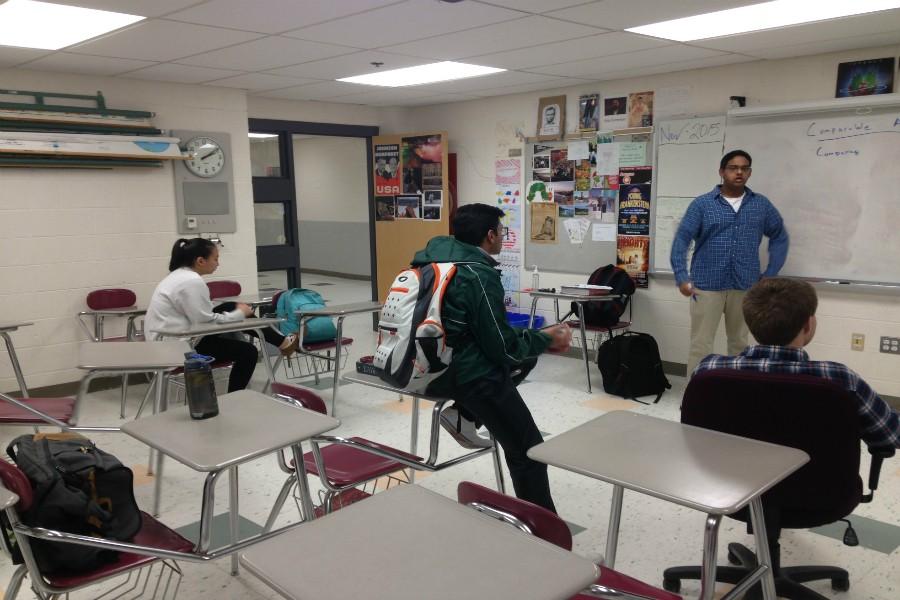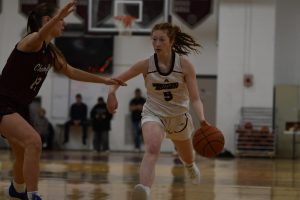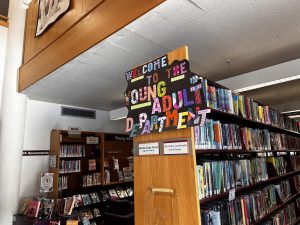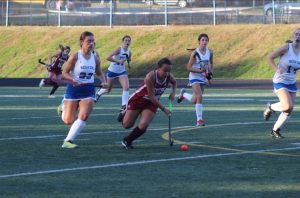Investment Club makes the big bucks
December 15, 2015
A group of students are currently piloting a new club at WA where interested students can learn about managing their finances in ways never offered to them in traditional classes.
Investment club, which is currently populated by mostly seniors, seeks to inform students on all of the important aspects of many financial related topics, from the stock market and making good investment choices, to understanding all of the data that companies release to the public and how they arrived to those statistical conclusions.
Ideally, students who visit the club regularly will become well-versed in financial matters, and may use that information to help them get a job or just be more capable of managing their own money beyond high school and college.
Senior Chinar Rastogi, the creator of the group, began to hold these gatherings because he wanted to share his knowledge of finances with other students.
“At the school we have all sorts of classes […] but they don’t teach you to manage your own money, and people don’t realize how important time is to your finances. The power of compounding, even just four years in your high school career can provide so much value to your retirement so I realized that if I can just help people realize the importance and power of investing in the stock market and how these things really work then they can make smart decisions on their own funds,” said Rastogi.
The students who are members of the club are fans of this method of learning the material, especially since they do not have access to this type of information in any class at WA.
“I learn a lot from Chinar’s teaching in this club that I can’t really learn online and is a lot more difficult to learn alone so having somebody who can actually explain it really helps,” said senior Andrew Porter, a member of the club.
The club plans to participate in around three competitions a year as well. Colleges host these competitions for high schools across the state who have their own official investment clubs, and groups of students from schools who do not have their own clubs, the category to which Rastogi and his peers fall into, are also allowed to participate.
These competitions last a long period of time, and take place over multiple months. Each school divides their members into teams of four to six, and every team is given anywhere from $100,000 to $500,000 of virtual money to invest in a virtual market that mirrors the stock market to see how much money they can make off of their investments. What isn’t virtual is the money that the team who wins the competition receives.
“The top prize is $5000, and half goes to the team, and half goes to the school itself, but I am not really interested in the money part of it,” said Rastogi.
In order to properly perform well in these competitions and make investments that will benefit their team, groups of students will meet monthly over Skype or Google Hangout to discuss their options as a team. They are required monthly to submit whatever they are investing in and how much they are investing to the competitions in order to progress, so a week before their deadline the students share ideas until they have reached a common ground.
“In addition to the hour a week that we come in and learn from Chinar, its usually an off and on every day, just checking your [investment] profile and checking stuff like that. We have to be pretty active,” said senior Neema Saberi.
Most of the club is a learning experience in general. While other clubs meet and then tend to discuss club activities or perform some sort of regular practice or exercises, investment club is structured more like a regular class than anything else.
Rastogi, who is well versed in the matters of finances, teaches his fellow peers about a new topic related to investments each week, in a manner more similar to a professional teacher giving a lecture than a student helping out his classmates. He uses notes that he created himself and a whiteboard to create an actual learning environment for around 20 other students regularly.
“I only took one course over the summer, it was Wall Street 101 at Bentley University, but most of the other stuff I just learned through self-study. I did it mostly for DECA, so I kind of binged the studying my junior year,” said Rastogi.
So far, the club is currently in the pilot stage; it is not an official club and has no advisor. However, Rastogi hopes that in the 2016-17 school year the club will become official.
Investment club meets every Thursday in room 101.







